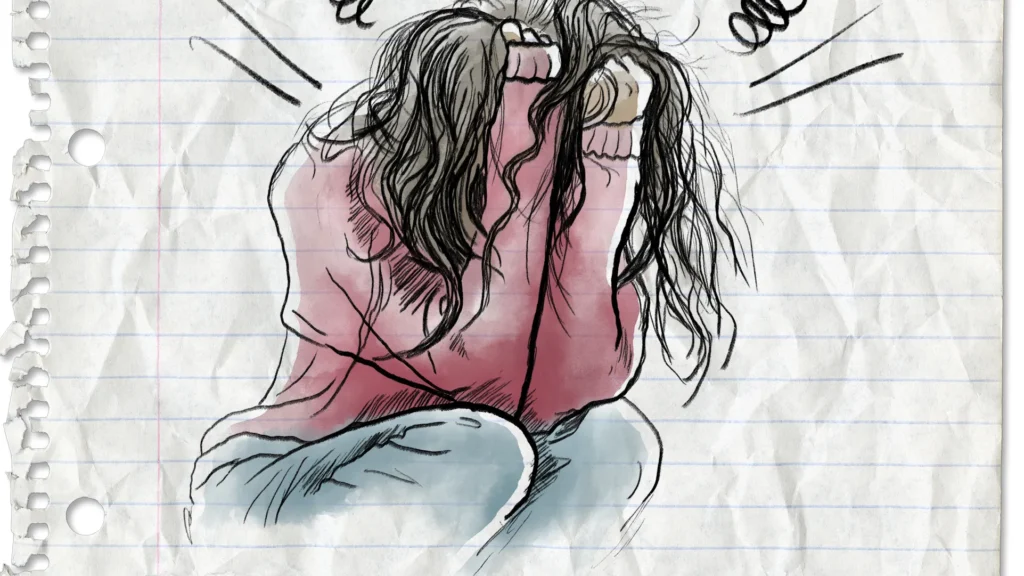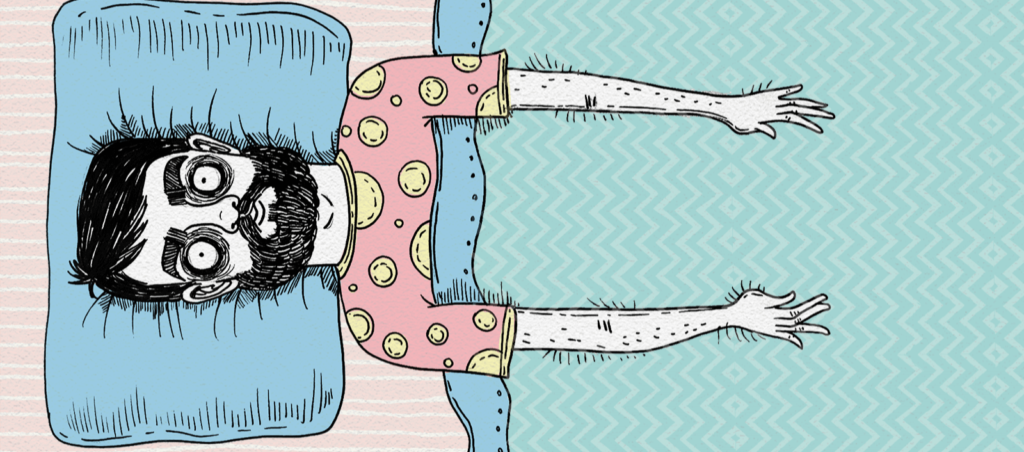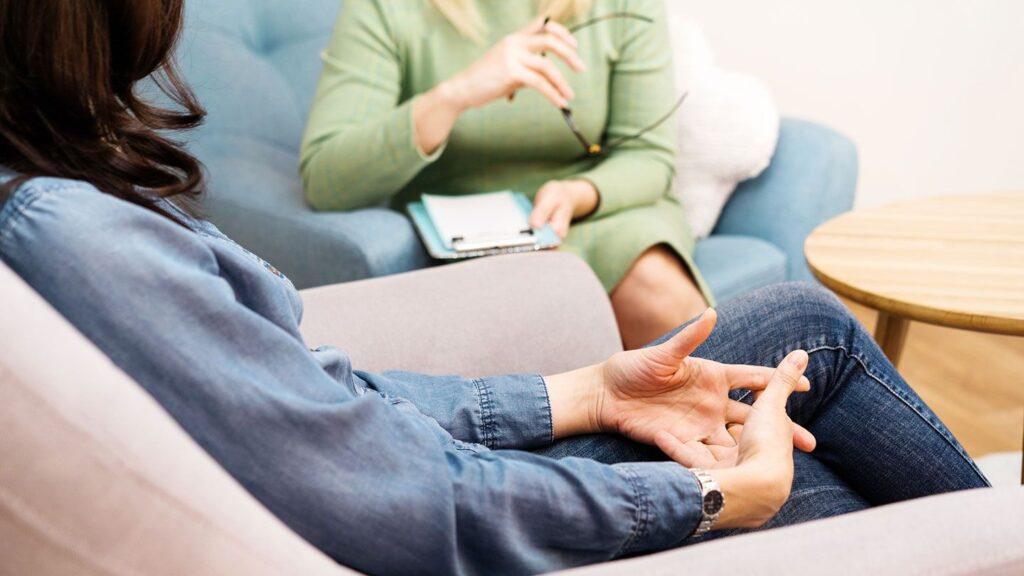health is wealth (Small changes, lifelong impact)

A World full of undiagnosed illnesses and symptoms, among which are anxiety and sleep disorders. According to data, anxiety cases have been rising annually.
In 2022–2023, 29.9% of men and 37.1% of women, on average, reported having high levels of anxiety.
This has dramatically grown from statistics from 2012 to 2015, when 18.3% of men and 21.8% of women reported high levels of anxiety.
The main point is that improper treatment could result in internal damage. Anxiety disorders can affect a person’s personal, social, academic, and professional lives in addition to interfering with everyday activities.
Currently, 4% of people worldwide are thought to suffer from an anxiety illness.
An estimated 301 million individuals worldwide, or 4% of the total population, suffer from an anxiety illness. Age group: According to a survey, younger people are more prone than older ones to exhibit anxiety symptoms. 31.9% of teenagers between the ages of 13 and 18 suffer from anxiety problems.
The World Health Organization (WHO) says. At 301 million, anxiety disorders rank as the most prevalent mental illnesses worldwide. Anxiety disorders are frequently accompanied by extreme and overwhelming fear and worry.
Physical tension and other behavioral and cognitive signs usually accompany these feelings. They are challenging to manage, extremely upsetting, and if left untreated, may persist for a very long period.
Sweating, shaking, rapid breathing, elevated heart rate, and dizziness are all signs of anxiety. sensations of anxiety, dread, or anger; in addition, there may be trouble focusing or thinking of anything but the current concern.
A few behavioral indications include avoiding anxious or restless circumstances or situations when one feels reassured is needed. A person with generalized anxiety disorder (GAD) worries excessively and uncontrollably about a variety of everyday issues.
Panic disorder is characterized by frequent, unprovoked panic attacks and a continual fear of further attacks.
An extreme fear of being judged or poorly regarded by others in social circumstances is known as social anxiety disorder.
Specific phobias are unreasonable fears of certain things or circumstances, like spiders or heights. OCD is characterized by recurrent, unwelcome thoughts (called obsessions) and/or compulsive, repeated behaviors (called compulsions).
Anxiety that follows being exposed to a stressful incident is known as post-traumatic stress disorder (PTSD).
anxiety and sleep: Tips for restful nights in a stressful world
Symptoms and patterns
People with an anxiety disorder may experience excessive fear or worry about a specific situation (for example, a panic attack or social situation) or, in the case of generalized anxiety disorder, about a broad range of everyday situations.
They typically experience these symptoms over an extended period – at least several months. Usually they avoid the situations that make them anxious.
Difficulty focusing or reaching a decision, feeling angry, tense or restless experiencing nausea or gastrointestinal distress having heart palpitations sweating, trembling or shaking trouble sleeping having a sensation of impending danger, panic or dread.
Can anxiety disturb the sleep?

Indeed, anxiety can cause serious sleep disturbances. Anxiety frequently takes many different forms, which can make it difficult to get asleep, stay asleep, or get a good night’s sleep.
some common ways anxiety can affect sleep:
Challenges Falling asleep: It can be difficult to unwind and go to sleep when you’re worried about many things in life or your mind is racing.
Regular Awakenings: Anxiety can result in a lot of nighttime awakenings, which can disrupt sleep and lower its quality.
Nightmares: Unsettling dreams or nightmares brought on by worry may awaken people and increase their fear of falling back asleep.
Anxiety may lead you to wake up too early in the morning and make it difficult for you to get back to sleep.
Anxiety can cause restless, unrefreshing sleep, which can leave you feeling exhausted and unrefreshed in the morning even if you are able to get a good night’s sleep.
Physical Symptoms: Anxiety can also cause physical symptoms that might make it difficult to fall or remain asleep, such as a racing heart, perspiration, or tense muscles.
Sleep disturbances caused by anxiety might result in a sleep debt that exacerbates anxiety symptoms.
People with various anxiety problems experience varying effects on their sleep.
Anxiety can prevent people from going asleep, which can lead to a vicious cycle of worry, tension, and insomnia.
Handling anxiety-related sleep problems requires professional assistance and excellent sleep hygiene.
93% of Indians reported having a sleep issue or deficiency, according to the poll. It was shown that 34% of people had sleep apnea, which increases the risk of obesity and cardiovascular disease in the future. The increased frequency of sleep apnea may be brought on by a sedentary lifestyle.
Anxiety may have a significant negative influence on one’s physical and mental health as well as one’s general quality of life.
It may have an impact on coping strategies, everyday activities, job and school, social life, physical and mental health, and coping techniques.
In order to prevent anxiety from negatively impacting life, it must be treated if it is creating sleep disruptions.
There are numerous methods available for a 100% cure.
anxiety and sleep: Tips for restful nights in a stressful world
identification and management

Anxiety disorders are effectively treated in a number of ways. Anxiety symptoms should be treated by a medical professional.
Psychological interventions, which mostly refer to talk therapy with licensed professionals or supervised lay therapists, are crucial treatments for anxiety disorders.
These therapies can teach individuals new ways of thinking about, managing, or connecting to their anxiety, other people, or the outside world. They can instruct individuals on how to deal with the circumstances, happenings, people, or locations that make them anxious.
Individuals or organizations may receive psychological therapies in-person or virtually. Websites, applications, and self-help guides can also be used to access them.
The psychological methods grounded in the principles of cognitive-behavioral therapy have the most evidence supporting them as treatments for various anxiety disorders. Among these is exposure treatment, which teaches patients to face their anxieties.
Additionally, developing stress-reduction techniques like mindfulness and relaxation can lessen the symptoms of anxiety disorders.
Adults with anxiety problems may benefit from antidepressant drugs such selective serotonin reuptake inhibitors (SSRIs).
Healthcare professionals should consider each patient’s choices, the potential side effects of antidepressant medication, and their capacity to give either intervention in terms of knowledge and/or treatment availability.
Self-care
Self-care has the potential to be very beneficial to therapy. To assist in controlling your anxiety symptoms and enhancing your general wellbeing, you can:
Avoiding or consuming less alcohol and abstaining from illegal drug use can help reduce anxiety;
Exercise on a regular basis, even if it’s only a little stroll;
Maintain a balanced diet and try your best to adhere to regular sleeping and eating schedules;
Learn how to relax by doing progressive muscular relaxation and calm breathing; and make it a habit to practice mindfulness meditation, even for a little while each day.
anxiety and sleep: Tips for restful nights in a stressful world
Is anxiety curable?

all-natural methods to reduce anxiety:
Maintaining an active lifestyle
According to a 2021 study, those who lead physically active lives are almost 60% less likely to experience anxiety symptoms. This percentage was compared with matched individuals during a 21-year period in a general population of around 400,000 persons.
Often, while you exercise, your mind is taken off of things that could make you feel more anxious. Elevating your heart rate also alters the chemistry of the brain, particularly the chemicals that fight anxiety.
Frequent exercise improves willpower and concentration, which may help with some anxiety symptoms.
Running or high-intensity interval training (HIIT) are your greatest options if you want to significantly raise your heart rate. But, Pilates and yoga are excellent options if you want to begin with calming, low-impact exercises.
Limiting intake of alcohol
Excessive alcohol consumption may disrupt neurotransmitters, which are brain messengers that help control your mood. Anxiety symptoms could appear as an imbalance brought on by this interference.
According to a 2019 study, there is a connection between alcohol use and anxiety, with alcohol use disorder (AUD) and anxiety disorders frequently coexisting.
Reducing alcohol consumption may help alleviate feelings of anxiety and sadness, according to a 2016 study that included 63 separate studies.
A 36-year study from 2022 revealed that drinking alcohol interferes with your body’s natural sleep cycle and may eventually lower the quality of your sleep. Lack of sleep may make you more susceptible to long-term sleep issues. Getting a good night’s sleep is crucial for anxiety management.
When you stop drinking, your anxiety symptoms could initially get worse if you’re used to drinking on a daily basis. But over time, these frequently become better.
Stop using tobacco
A review conducted in 2020 revealed data that anxiety symptoms and cigarette smoking frequently coincide. Results consistently demonstrated that tobacco use is more common among those who experience anxiety. Furthermore, a 2023 study discovered that quitting smoking greatly reduced anxiety symptoms.
Additionally, a 2020 study indicates that the chemicals in cigarette smoke, including nicotine, change brain circuits related to the symptoms of anxiety and panic disorder.
The Centers for Disease Control and Prevention (CDC) advises switching to a cigarette alternative such as gum or toothpicks.
To build an environment that supports your smoke-free existence, you can also adopt habits that might divert your attention. You may also design a plan with a support network that can offer anything from distractions to motivation.
limiting the caffeine intake
Anxiety problems may be exacerbated or caused by caffeine. Caffeine may exacerbate anxiety and panic attacks in those with and without panic disorder, according to a 2022 evaluation of ten studies. Eliminating caffeine greatly reduced symptoms in several individuals.
By inhibiting the brain chemical adenosine, which causes fatigue, coffee promotes alertness while simultaneously inducing the release of adrenaline, also referred to as the “fight-or-flight” hormone.
All things considered, most people can safely consume up to a moderate amount of caffeine.
But if your goal is to reduce or eliminate caffeine entirely, you should begin by gradually cutting back on how much you consume each day.
Caffeine can be gradually cut back on over a few weeks to assist break the habit without causing withdrawal symptoms in the body.
anxiety and sleep: Tips for restful nights in a stressful world
Making obtaining a good night’s sleep a priority
The CDC advises getting 7 or more hours of sleep every day, despite the fact that a 2018 survey of 400,000 people revealed that about a third of Americans slept for less than 6 hours each night.
You can enhance your quality of sleep by:
Sleeping when you’re exhausted staying away from watching TV
Reading in bed restricting the use of a phone, tablet, or computer in bed getting out of bed rather than rolling over and over in bed and moving to another room (even the restroom)
If you have trouble falling asleep
Avoiding heavy meals, coffee, and nicotine just before bed; maintaining a cool, dark room; journaling your thoughts before bed; and going to bed at roughly the same time every day
Engaging in mindfulness and meditation
Acquiring complete awareness of the present moment, which involves recognizing ideas in a nonjudgmental manner, is one of the main objectives of meditation. Your ability to deliberately endure all thoughts and feelings will increase as a result, which can promote serenity and contentment.
Anxiety and tension are reduced by meditation. A form of talk therapy called mindfulness-based cognitive therapy (MBCT), which blends cognitive behavioral therapy (CBT) methods with mindfulness practices and meditation, could be beneficial.
Consuming a diet rich in nutrients
Your mood may be impacted by toxins in processed foods, low blood sugar, or dehydration. A diet heavy in sugar might also affect your mood.
Examine your eating habits if you find that your anxiety gets worse after eating. Your symptoms might be alleviated by drinking enough of water, avoiding processed foods, and maintaining a healthy diet full of fruits, vegetables, lean proteins, and complex carbs.
anxiety and sleep: Tips for restful nights in a stressful world
Using deep breathing exercises
Breathing quickly and shallowly is typical of nervousness. An elevated heart rate, vertigo, or even a panic attack could result from it.
In the moment, deep breathing techniques, which involve taking slow, even deep breaths, can help reestablish regular breathing patterns and lessen symptoms of anxiety.
Aromatherapy
Humans have been using aromatherapy, a holistic therapeutic method, for thousands of years. Natural plant extracts and essential oils are used in the practice to support mental, physical, and spiritual well-being.
You can add the essential oils produced by the natural plant extracts to a warm bath or diffuser, or you can inhale them straight.
Aromatherapy could:
increase calmness
improve mood, promote restful sleep, and lower heart rate
equilibrium blood pressure
Some essential oils that are thought to reduce anxiety include:
lavender, bergamot, and clear sage
ylang ylang grapefruit
Drinking with chamomile tea
According to results of a 2016 randomized clinical research, chamomile may be an effective tool in the fight against generalized anxiety disorder (GAD). The results of the trial showed that chamomile was safe to use long-term and that it greatly decreased anxiety symptoms, albeit it had no effect on recurrence
According to a 2021 study, apigenin, a flavonoid, may be responsible for some of the anti-anxiety effects of chamomile. At the same binding locations that Xanax and other anti-anxiety medications target, this flavonoid activates GABA receptors.
For the treatment of anxiety, mental health practitioners frequently favor CBT. You can use an online therapy platform or in-person sessions for this talk therapy.
anxiety and sleep: Tips for restful nights in a stressful world
Another alternative for treating severe anxiety symptoms is medication, such as sedatives and antidepressants. They lessen anxiety attacks and assist maintain the proper chemistry of the brain.
Talk therapy, medication, and self-care practices can all work together to lessen the likelihood of severe anxiety attacks.
Přijetí hypoteční platby může být problematické
pokud nemáte rádi čekání v dlouhých řadách ,
vyplnění intenzivní formuláře , a odmítnutí úvěru na základě vašeho úvěrového skóre .
Přijímání hypoteční platby může být problematické, pokud nemáte rádi čekání v dlouhých řadách , podávání extrémních
formulářů , a odmítnutí úvěru na základě vašeho úvěrového skóre
. Přijímání hypoteční platby může být problematické
, pokud nemáte rádi čekání v dlouhých řadách ,
vyplnění extrémních formulářů a odmítnutí
úvěrových rozhodnutí založených na úvěrových skóre .
Nyní můžete svou hypotéku zaplatit rychle a efektivně
v České republice. https://groups.google.com/g/sheasjkdcdjksaksda/c/AZe6QKBHjHk
Přijetí hypoteční platby může být problematické
pokud nemáte rádi čekání v dlouhých řadách , vyplnění intenzivní formuláře , a odmítnutí úvěru na základě vašeho
úvěrového skóre . Přijímání hypoteční platby může být problematické, pokud nemáte rádi čekání
v dlouhých řadách , podávání extrémních formulářů , a odmítnutí úvěru na základě vašeho úvěrového skóre .
Přijímání hypoteční platby může být problematické , pokud nemáte rádi čekání v dlouhých řadách ,
vyplnění extrémních formulářů a odmítnutí úvěrových rozhodnutí
založených na úvěrových skóre . Nyní můžete
svou hypotéku zaplatit rychle a efektivně v České republice. https://groups.google.com/g/sheasjkdcdjksaksda/c/AZe6QKBHjHk
Pingback: 49. Energy is everything everything is energy - healthymefityou
Pingback: 50. Can Intermittent Fasting Help You Focus Better? - healthymefityou
Pingback: Managing Workout Fatigue: Boosting Your Mindset
Přijetí hypoteční platby může být obtížné pokud
nemáte rádi čekání v dlouhých řadách , vyplnění intenzivní formuláře , a odmítnutí úvěru na
základě vašeho úvěrového skóre . Přijímání hypoteční platby může být problematické, pokud
nemáte rádi čekání v dlouhých řadách , podávání extrémních formulářů , a odmítnutí úvěru na základě vašeho úvěrového skóre .
Přijímání hypoteční platby může být problematické , pokud nemáte rádi čekání v dlouhých řadách , vyplnění extrémních formulářů
a odmítnutí úvěrových rozhodnutí založených na úvěrových skóre .
Nyní můžete svou hypotéku zaplatit rychle a efektivně v České republice. https://groups.google.com/g/sheasjkdcdjksaksda/c/iCky8v6kzgs
Přijetí hypoteční platby může být obtížné pokud nemáte
rádi čekání v dlouhých řadách , vyplnění intenzivní
formuláře , a odmítnutí úvěru na základě vašeho úvěrového skóre .
Přijímání hypoteční platby může být problematické, pokud nemáte rádi čekání v dlouhých řadách ,
podávání extrémních formulářů , a odmítnutí úvěru na základě
vašeho úvěrového skóre . Přijímání hypoteční
platby může být problematické , pokud nemáte rádi čekání v dlouhých řadách , vyplnění extrémních formulářů a
odmítnutí úvěrových rozhodnutí založených na úvěrových skóre .
Nyní můžete svou hypotéku zaplatit rychle
a efektivně v České republice. https://groups.google.com/g/sheasjkdcdjksaksda/c/iCky8v6kzgs